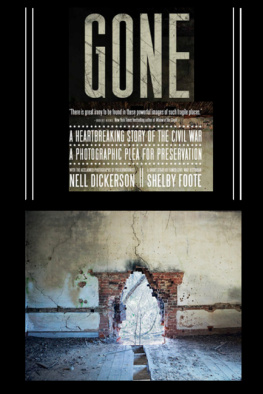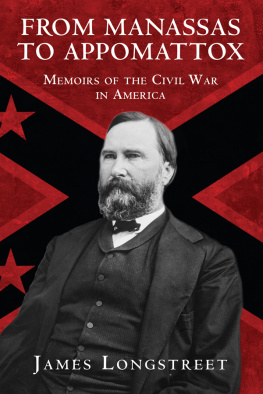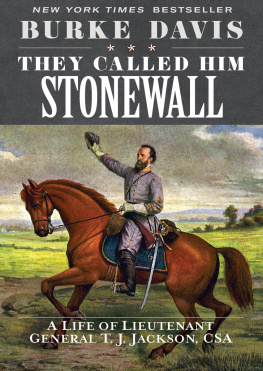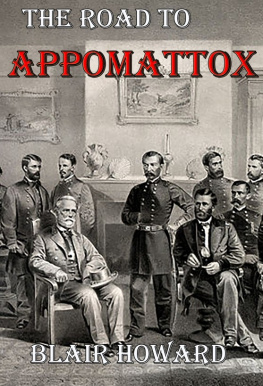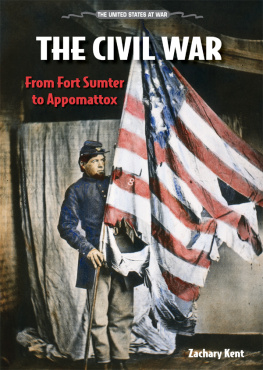Shelby Foote - The Civil War: A Narrative: Volume 3: Red River to Appomattox
Here you can read online Shelby Foote - The Civil War: A Narrative: Volume 3: Red River to Appomattox full text of the book (entire story) in english for free. Download pdf and epub, get meaning, cover and reviews about this ebook. year: 1986, publisher: Vintage Books, genre: Detective and thriller. Description of the work, (preface) as well as reviews are available. Best literature library LitArk.com created for fans of good reading and offers a wide selection of genres:
Romance novel
Science fiction
Adventure
Detective
Science
History
Home and family
Prose
Art
Politics
Computer
Non-fiction
Religion
Business
Children
Humor
Choose a favorite category and find really read worthwhile books. Enjoy immersion in the world of imagination, feel the emotions of the characters or learn something new for yourself, make an fascinating discovery.

- Book:The Civil War: A Narrative: Volume 3: Red River to Appomattox
- Author:
- Publisher:Vintage Books
- Genre:
- Year:1986
- Rating:5 / 5
- Favourites:Add to favourites
- Your mark:
- 100
- 1
- 2
- 3
- 4
- 5
The Civil War: A Narrative: Volume 3: Red River to Appomattox : summary, description and annotation
We offer to read an annotation, description, summary or preface (depends on what the author of the book "The Civil War: A Narrative: Volume 3: Red River to Appomattox " wrote himself). If you haven't found the necessary information about the book — write in the comments, we will try to find it.
The Civil War: A Narrative: Volume 3: Red River to Appomattox — read online for free the complete book (whole text) full work
Below is the text of the book, divided by pages. System saving the place of the last page read, allows you to conveniently read the book "The Civil War: A Narrative: Volume 3: Red River to Appomattox " online for free, without having to search again every time where you left off. Put a bookmark, and you can go to the page where you finished reading at any time.
Font size:
Interval:
Bookmark:
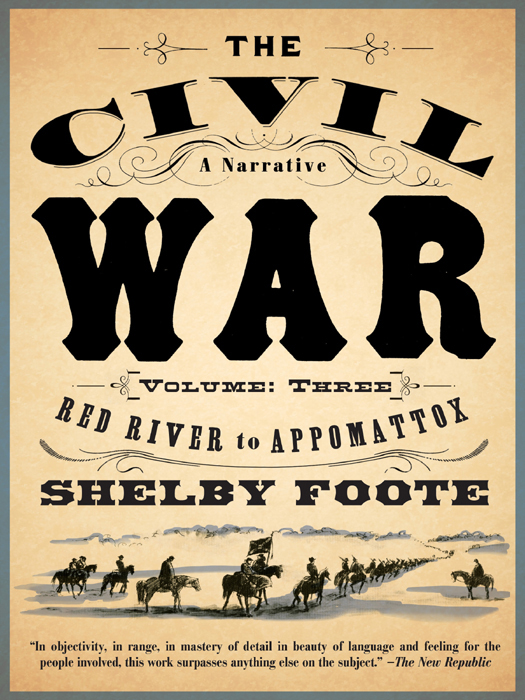
ALL THESE WERE HONOURED IN THEIR GENERATIONS
AND WERE THE GLORY OF THEIR TIMES
THERE BE OF THEM
THAT HAVE LEFT A NAME BEHIND THEM
THAT THEIR PRAISES MIGHT BE REPORTED
AND SOME THERE BE WHICH HAVE NO MEMORIAL
WHO ARE PERISHED AS THOUGH THEY HAD NEVER BEEN
AND ARE BECOME AS THOUGH THEY HAD NEVER BEEN BORN
AND THEIR CHILDREN AFTER THEM
BUT THESE WERE MERCIFUL MEN
WHOSE RIGHTEOUSNESS HATH NOT BEEN FORGOTTEN
WITH THEIR SEED SHALL CONTINUALLY REMAIN
A GOOD INHERITANCE
AND THEIR CHILDREN ARE WITHIN THE COVENANT
THEIR SEED STANDETH FAST
AND THEIR CHILDREN FOR THEIR SAKES
THEIR SEED SHALL REMAIN FOR EVER
AND THEIR GLORY SHALL NOT BE BLOTTED OUT
THEIR BODIES ARE BURIED IN PEACE
BUT THEIR NAME LIVETH FOR EVERMORE
Ecclesiasticus xliv
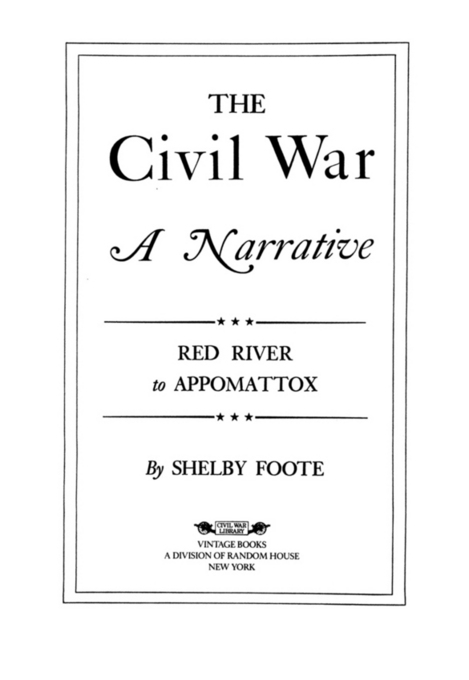
First Vintage Books Edition, September 1986
Copyright 1974 by Shelby Foote
All rights reserved under International and Pan-American Copyright Conventions. Published in the United States by Random House, Inc., New York, and simultaneously in Canada by Random House of Canada Limited, Toronto.
Originally published by Random House, Inc., in 1974.
Library of Congress Cataloging-in-Publication Data
Foote, Shelby.
The Civil War, a narrative.
Contents: v. 1. Fort Sumter to Perryville
v. 2. Fredericksburg to Meridian
v. 3. Red River to Appomattox.
1. United StatesHistoryCivil War, 18611865.
I. Title.
E468.F7 1986 973.7 86-40135
eISBN: 978-0-307-74469-2
v3.1

LIST OF MAPS,
BIBLIOGRAPHICAL NOTE
 I
I 
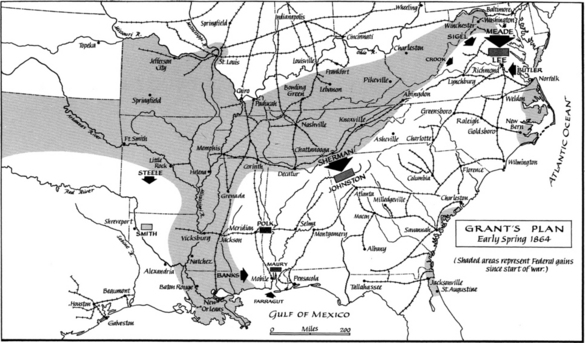

Another Grand Design

LATE AFTERNOON OF A RAW, GUSTY DAY in early spring March 8, a Tuesday, 1864 the desk clerk at Willards Hotel, two blocks down Pennsylvania Avenue from the White House, glanced up to find an officer accompanied by a boy of thirteen facing him across the polished oak of the registration counter and inquiring whether he could get a room. A short, round-shouldered man in a very tarnished major generals uniform, he seemed to a bystanding witness to have no gait, no station, no manner, to present instead, with his ill-fitting jacket cut full in the skirt and his high-crowned hat set level on his head, a somewhat threadbare, if not quite down-at-heels, conglomerate impression of rough, light-brown whiskers, a blue eye, and rather a scrubby look withal as if he was out of office and on half pay, with nothing to do but hang round the entry of Willards, cigar in mouth. Discerning so much of this as he considered worth his time, together perhaps with the bystanders added observation that the applicant had rather the look of a man who did, or once did, take a little too much to drink, the clerk was no more awed by the strangers rank than he was attracted by his aspect. This was, after all, the best known hostelry in Washington. There had been by now close to five hundred Union generals, and of these the great majority, particularly among those who possessed what was defined as station, had checked in and out of Willards in the past three wartime years. In the course of its recent and rapid growth, under the management of a pair of Vermont brothers who gave it their name along with their concern, it had swallowed whole, together with much other adjacent real estate, a former Presbyterian church; the President-elect himself had stayed here through the ten days preceding his inauguration, making of its Parlor 6 a little White House, and it was here, one dawn two years ago in one of its upper rooms, that Julia Ward Howe had written her Battle Hymn of the Republic, the anthem for the crusade the new President had begun to design as soon as he took office. Still, bright or tarnished, stars were stars; a certain respect was owed, if not to the man who wore them, then in any case to the rank they signified; the clerk replied at last that he would give him what he had, a small top-floor room, if that would do. It would, the other said, and when the register was given its practiced half-circle twirl he signed without delay. The desk clerk turned it back again, still maintaining the accustomed, condescending air he was about to lose in shock when he read what the weathered applicant had written: U.S. Grant & Son Galena, Illinois.
Whereupon (for such was the aura that had gathered about the name Unconditional Surrender Grant, hero of Donelson, conqueror of Vicksburg, deliverer of Chattanooga) there was an abrupt transformation, not only in the attitude of the clerk, whose eyes seemed to start from his head at the sight of the signature and who struck the bell with a force that brought on the double all the bellboys within earshot, but also in that of the idlers, the loungers roundabout the lobby, who soon learned the cause of the commotion in the vicinity of the desk. It was as if the prayers of the curious had been answered after the flesh. Here before them, in the person of this undistinguished-looking officer forty-one years of age, five feet eight inches tall, and weighing just under a hundred and forty pounds in his scuffed boots and shabby clothes was the man who, in the course of the past twenty-five months of a war in which the news had mostly been unwelcome from the Federal point of view, had captured two rebel armies, entire, and chased a third clean out of sight beyond the roll of the southern horizon. Now that he made a second visual assessment, more deliberate and above all more informed than the first, the bystander who formerly had seen only an ordinary, scrubby-looking man, with a slightly seedy look, perceived that there was more to him than had been apparent before the authentication that came with the fixing of the name. The blue eye became a clear blue eye, and the once stolid-seeming face took on a look of resolution, as if he could not be trifled with.
Such, then, was the effect of the gathered aura. And yet there was a good deal more to it than fame, past or present. There was also anticipation, and of a particular national form. Just last week, on Leap Year Day, the President had signed a congressional act reviving the grade of lieutenant general, and Grant had been summoned east to receive in person his promotion, together with command of all the armies of the Union, which he was expected to lead at last to final victory over the forces that had threatened its destruction. Forgotten now was the small top-floor room his modesty had been willing to accept. Instead, the clerk obsequiously tendered the distinguished guest the best in the house: meaning Parlor 6, where Abraham Lincoln himself had held court in the days preceding his inauguration, less than one week more than three years ago today.
Font size:
Interval:
Bookmark:
Similar books «The Civil War: A Narrative: Volume 3: Red River to Appomattox »
Look at similar books to The Civil War: A Narrative: Volume 3: Red River to Appomattox . We have selected literature similar in name and meaning in the hope of providing readers with more options to find new, interesting, not yet read works.
Discussion, reviews of the book The Civil War: A Narrative: Volume 3: Red River to Appomattox and just readers' own opinions. Leave your comments, write what you think about the work, its meaning or the main characters. Specify what exactly you liked and what you didn't like, and why you think so.

